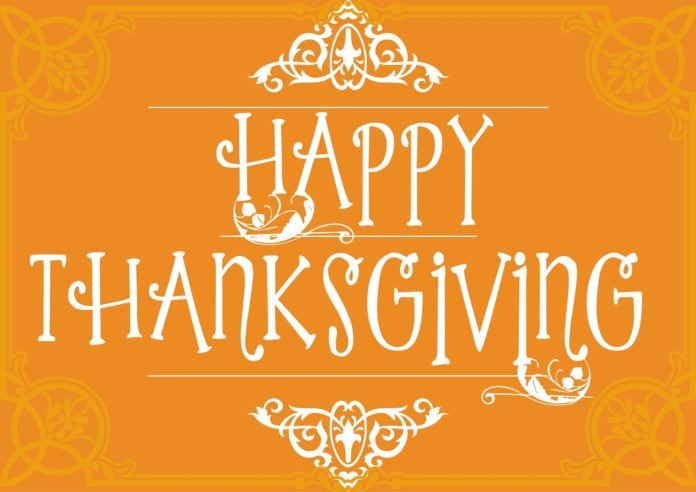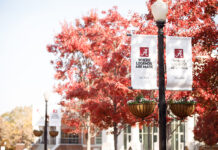President George Washington, 1789
George Washington, who had on several occasions proclaimed special thanksgiving observances by his troops after victories in the American Revolution, approached Congress within months of his inauguration as the nation’s first President in 1789 with the idea of a nation thanksgiving observance. Following a series of talks, he issued the following statement on Oct. 3, 1789.
By the President of the United States of America. A Proclamation.
Whereas it is the duty of all Nations to acknowledge the providence of Almighty God, to obey his will, to be grateful for his benefits, and humbly to implore his protection and favor—and whereas both Houses of Congress have by their joint Committee requested me “to recommend to the People of the United States a day of public thanksgiving and prayer to be observed by acknowledging with grateful hearts the many signal favors of Almighty God especially by affording them an opportunity peaceably to establish a form of government for their safety and happiness.”
Now therefore I do recommend and assign Thursday the 26th day of November next to be devoted by the People of these States to the service of that great and glorious Being, who is the beneficent Author of all the good that was, that is, or that will be—That we may then all unite in rendering unto him our sincere and humble thanks—for his kind care and protection of the People of this Country previous to their becoming a Nation—for the signal and manifold mercies, and the favorable interpositions of his Providence which we experienced in the course and conclusion of the late war—for the great degree of tranquillity, union, and plenty, which we have since enjoyed—for the peaceable and rational manner, in which we have been enabled to establish constitutions of government for our safety and happiness, and particularly the national One now lately instituted—for the civil and religious liberty with which we are blessed; and the means we have of acquiring and diffusing useful knowledge; and in general for all the great and various favors which he hath been pleased to confer upon us.
And also that we may then unite in most humbly offering our prayers and supplications to the great Lord and Ruler of Nations and beseech him to pardon our national and other transgressions—to enable us all, whether in public or private stations, to perform our several and relative duties properly and punctually—to render our national government a blessing to all the people, by constantly being a Government of wise, just, and constitutional laws, discreetly and faithfully executed and obeyed—to protect and guide all Sovereigns and Nations (especially such as have shewn kindness unto us) and to bless them with good government, peace, and concord—To promote the knowledge and practice of true religion and virtue, and the encrease [sic.] of science among them and us—and generally to grant unto all Mankind such a degree of temporal prosperity as he alone knows to be best.
Given under my hand at the City of New-York the third day of October in the year of our Lord 1789.
Go: Washington
Washington’s proclamation called for a specific day as a one-time observance, and did not seek to establish an ongoing holiday. Later presidents would issue thanksgiving proclamations and declare various days of observance, and many states, especially in New England, would declare their own local Thanksgiving holidays over the years. It would take the nation’s greatest national crisis, though, to make the observance a regular point on the American calendar.
Abraham Lincoln, 1863
On July 15, 1863, two years into the Civil War and in the immediate wake of major Union Army victories at Gettysburg and Vicksburg, Abraham Lincoln issued a proclamation declaring Thursday, Aug. 6, 1863 a national day of thanksgiving.
In late September of that year, he received a letter from Sarah Josepha Hale, the editor of Godey’s Lady’s Book magazine who had been lobbying the federal government for a national Thanksgiving observance (which earned her the nickname “Mother of Thanksgiving”), requesting that he declare a regular annual Thanksgiving holiday nationwide. Within days, Lincoln’s Secretary of State William Seward had drawn up the following proclamation document which Lincoln signed and issued on Oct. 3, 1863, 74 years to the day after Washington issued his proclamation.
By the President of the United States of America. A Proclamation.
The year that is drawing towards its close, has been filled with the blessings of fruitful fields and healthful skies. To these bounties, which are so constantly enjoyed that we are prone to forget the source from which they come, others have been added, which are of so extraordinary a nature, that they cannot fail to penetrate and soften even the heart which is habitually insensible to the ever watchful providence of Almighty God. In the midst of a civil war of unequalled magnitude and severity, which has sometimes seemed to foreign States to invite and to provoke their aggression, peace has been preserved with all nations, order has been maintained, the laws have been respected and obeyed, and harmony has prevailed everywhere except in the theatre of military conflict; while that theatre has been greatly contracted by the advancing armies and navies of the Union. Needful diversions of wealth and of strength from the fields of peaceful industry to the national defence, have not arrested the plough, the shuttle or the ship; the axe has enlarged the borders of our settlements, and the mines, as well of iron and coal as of the precious metals, have yielded even more abundantly than heretofore. Population has steadily increased, notwithstanding the waste that has been made in the camp, the siege and the battle-field; and the country, rejoicing in the consciousness of augmented strength and vigor, is permitted to expect continuance of years with large increase of freedom. No human counsel hath devised nor hath any mortal hand worked out these great things. They are the gracious gifts of the Most High God, who, while dealing with us in anger for our sins, hath nevertheless remembered mercy. It has seemed to me fit and proper that they should be solemnly, reverently and gratefully acknowledged as with one heart and one voice by the whole American People. I do therefore invite my fellow citizens in every part of the United States, and also those who are at sea and those who are sojourning in foreign lands, to set apart and observe the last Thursday of November next, as a day of Thanksgiving and Praise to our beneficent Father who dwelleth in the Heavens. And I recommend to them that while offering up the ascriptions justly due to Him for such singular deliverances and blessings, they do also, with humble penitence for our national perverseness and disobedience, commend to His tender care all those who have become widows, orphans, mourners or sufferers in the lamentable civil strife in which we are unavoidably engaged, and fervently implore the interposition of the Almighty Hand to heal the wounds of the nation and to restore it as soon as may be consistent with the Divine purposes to the full enjoyment of peace, harmony, tranquillity and Union.
In testimony whereof, I have hereunto set my hand and caused the Seal of the United States to be affixed.
Done at the City of Washington, this Third day of October, in the year of our Lord one thousand eight hundred and sixty-three, and of the Independence of the United States the Eighty-eighth.
By the President: Abraham Lincoln
Lincoln’s proclamation scheduled the holiday for “the last Thursday of November next,” the wording pointing again to a one-time observance, but the holiday became a regular feature of the nation’s calendar.
Last Thursday of November?
Thanksgiving was observed on the last Thursday of November until 1939, when the last Thursday of November was the last day of the month. With the U.S. still trying to come out of the Great Depression, President Franklin Roosevelt wanted to extend the Christmas shopping season, which typically did not begin until after Thanksgiving. To that end, he issued a Presidential Proclamation declaring the second to last Thursday as Thanksgiving. Sixteen states rejected the proclamation and, for two years, the country had two Thanksgivings.
On Dec. 26, 1941, after months of debate in both houses of Congress, Roosevelt signed a joint resolution naming the fourth Thursday of November as Thanksgiving.
The Cullman Tribune family wishes your family a happy Thanksgiving and a safe, sane and successful Black Friday!





























